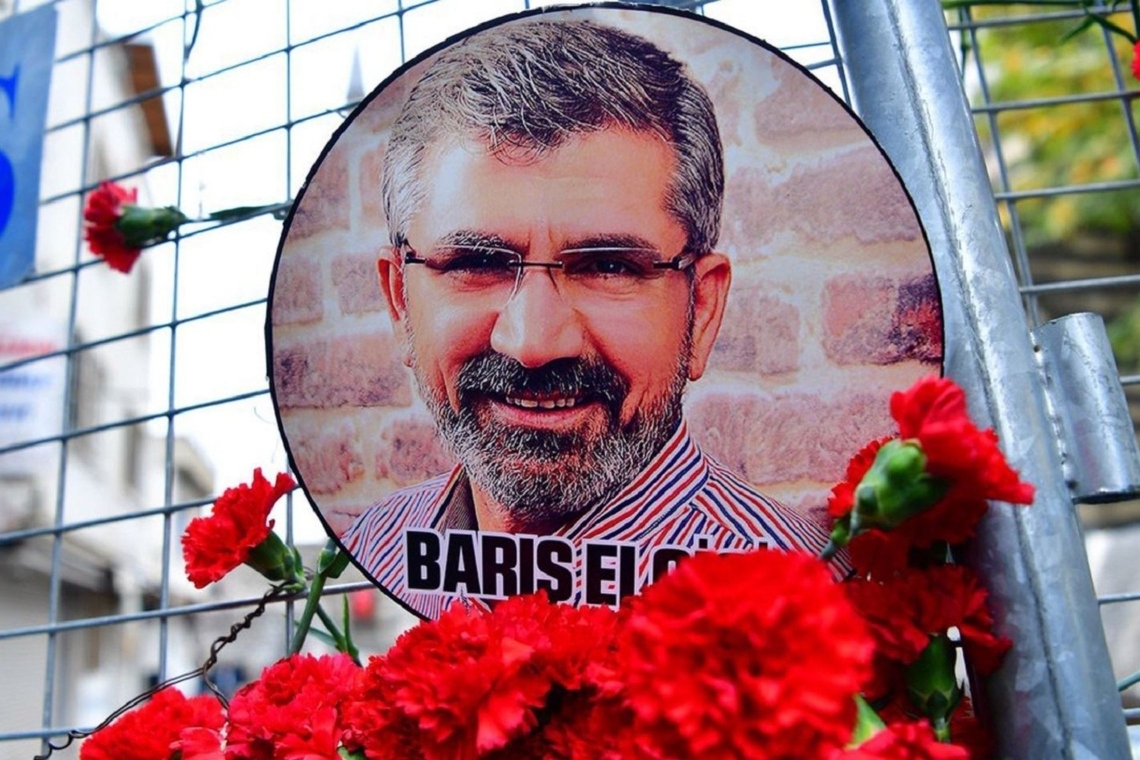DIYARBAKIR (July 10, 2024) — The Diyarbakır 10th High Criminal Court has released the reasoning behind its June 12, 2024, acquittal of three police officers charged with "causing death by conscious negligence" in the 2015 murder of former Diyarbakır Bar Association President Tahir Elçi.
The court cited doubt over who fired the fatal shot that killed Elçi, stating, "There is uncertainty regarding who executed the deadly shot that caused Elçi’s death." The court argued that the suspicion surrounding the case was insufficient to convict the officers.
Details of the court’s decision
The court maintained that the participation of the accused officers via the video conferencing system SEGBİS was lawful and upheld the principles of direct and oral proceedings. The court rejected requests for the officers to be present in person, claiming that technical provisions allowed for direct questioning by the Elçi family's lawyers.
The court noted that witnesses had no direct knowledge of who fired the fatal shot. However, it did not address allegations that witness Deniz Ataş had given his testimony under prosecutorial pressure and torture.
Lack of conclusive evidence
The court reiterated that no video footage captured the moment of Elçi's death. TÜBİTAK's examination of a security camera from a nearby kebab shop found no relevant footage, noting that the device recorded only until 2010.
The court dismissed requests for a new on-site investigation, arguing that the conflict-damaged scene had lost its original features, making such an investigation unlikely to provide new insights.
Dismissal of intelligence officers’ testimony
The court also rejected calls to hear from intelligence officers S.K., Y.K., B.H., and H.A., who were following PKK members on the day of the murder, stating they had no direct knowledge of the incident. Requests to obtain intelligence wiretap records of the suspects and to hear from informants Ahmet Soylu and Aynur Güzel were similarly denied due to their lack of direct information and security concerns.
Reference to legal principles
The court referenced the Turkish Supreme Court's principle that "doubt benefits the defendant," emphasizing that a conviction requires certainty beyond reasonable doubt. Given the lack of conclusive evidence, the court could not determine which weapon fired the fatal shot, nor could it definitively link it to the accused officers.
Acquittal reasoning
The court detailed that the police officers' consistent denials, the lack of ballistic evidence linking the officers' weapons to the bullet that killed Elçi, and the absence of direct eyewitness accounts led to the acquittal. The forensic and ballistic reports did not conclusively determine the trajectory or source of the fatal shot. The court found that despite strong suspicion, this alone did not suffice for a conviction.
Criticism of the decision
Tahir Elçi Human Rights Foundation Chairman Mahsum Batı criticized the ruling, stating, "The court claims there is doubt but did nothing to resolve it, rejecting numerous requests from the plaintiffs. The 27-page decision merely lists procedural steps without engaging with the evidence or justifying its conclusions. It is a poorly reasoned decision lacking in legal substance and failing to incorporate key principles of criminal law."
The court's decision underscores the challenges in resolving high-profile cases involving state actors, highlighting ongoing concerns about judicial transparency and accountability in Turkey.



